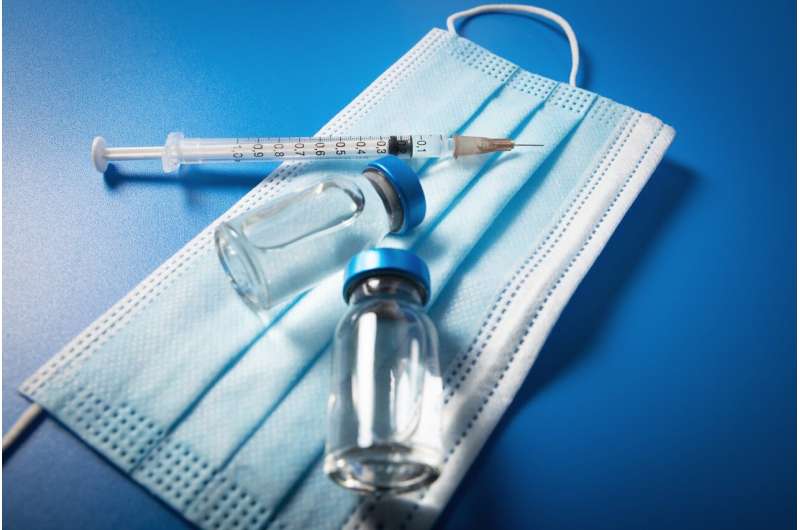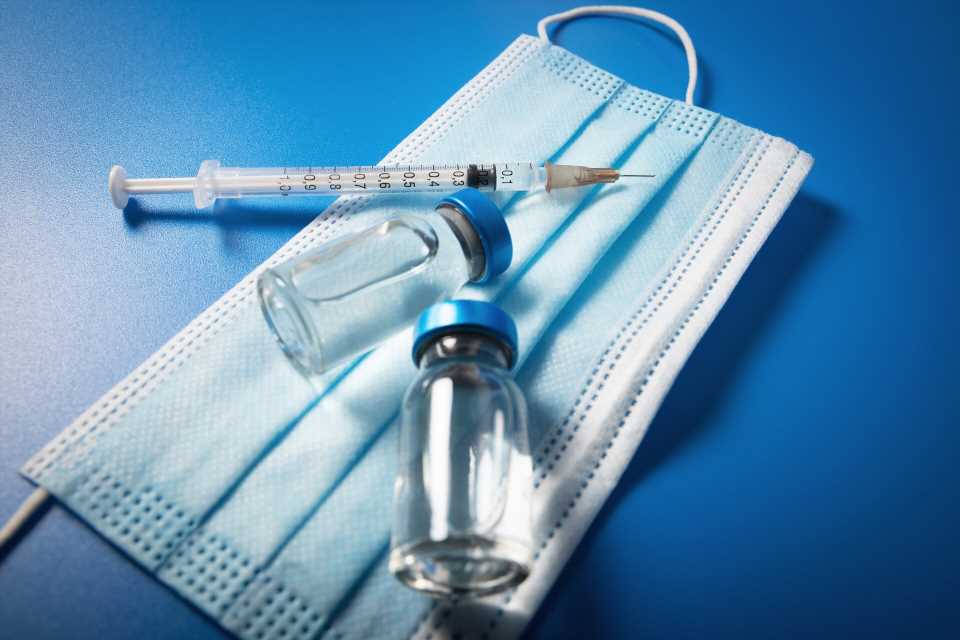
As the country set a record high for daily COVID-19 cases this week, new treatments like the Pfizer and Merck pills that help people avoid hospitalization couldn’t come at a better time. For many, the approval of the new pills brings some sense of optimism.
“It definitely shows that the science that we currently have in the world is extraordinary,” says Shivanjali Shankaran, MD, director of inpatient general infectious diseases and an assistant professor at Rush University Medical Center. However, she cautions that finding these pills may be difficult initially, and they are not appropriate for everyone who gets COVID-19.
We asked Shankaran to discuss the new pills and other types of COVID-19 treatments for people who are able to recover at home as well as those with more severe cases who require hospitalization.
How do the new COVID-19 pills work?
In December, the U.S. Food and Drug Administration authorized two new pills to treat COVID: Pfizer’s Paxlovid and Merck’s molnupiravir, which prevent viral replication in slightly different ways.
Paxlovid is a type of drug called a protease inhibitor that blocks the activity of an enzyme that the coronavirus needs to replicate. The pill also includes an antiviral drug called ritonavir, which is used in combination with other drugs to treat HIV.
The Merck pill, on the other hand, is a type of drug called a nucleoside analog that prevents the virus that causes COVID-19 from multiplying. “It introduces mutations into the proteins made as the virus replicates, which eventually slows and stops the process,” Shankaran says. “If the virus isn’t able to multiply, it essentially dies out.”
Both treatments involve taking the pills twice a day for five days.
Is one COVID-19 pill better than the other?
Based on clinical trial data, Paxlovid appears to have better efficacy against COVID-19, Shankaran says. Specifically, it was shown to reduce the risk of hospitalization and death from COVID-19 by 88% among high-risk patients when taken within five days of getting symptoms. In contrast, molnupiravir reduced the risk of hospitalization or death by 30%.
When it becomes available, the Merck pill will be offered to a narrower group of people. “Because of possible effects on a fetus, it won’t be offered to pregnant women,” Shankaran says. Another downside: Women should use contraception for four days after their last dose, while men should use contraception for at least three months after their last dose.
Molnupiravir is also not approved for those under 18. That means Paxlovid will be the only option for children.
In people of all ages, Paxlovid will require monitoring because it can affect certain liver enzymes. For this reason, it is not recommended for people with severe liver or kidney disease. It also may interact with a fairly long list of medications, Shankaran says.
For these reasons, Shankaran anticipates that the “best” COVID-19 pill will depend “on the patient, what they do, what they take and what other conditions they have.”
How soon do I need to start taking the pills after getting symptoms?
Both Paxlovid and molnupiravir need to be started within five days after the appearance of symptoms, such as a cough, fever or shortness of breath. That means it’s important to get tested as soon as you think you might have COVID-19.
“The reason these pills need to be given early is because the viremia, or the active multiplication of the virus, happens very early,” Shankaran says. “So, if you’re waiting 10 or 11 days after you have symptoms, by then there is no multiplication, which means these medicines won’t work.”
How can I get the COVID-19 pills?
It’s not clear when pharmacies will receive the pills and when providers can begin prescribing them, Shankaran says. Those details will be determined by state health officials, including the Illinois Department of Public Health (IDPH), over the next few weeks. Because she anticipates that availability will be limited when the drugs first become available, it is not likely that every person who is eligible will be able to access the pills.
That is why getting vaccinated and boosted remains the best defense against COVID-19. “While it’s always good to have more options that are effective and safe for the patient, the pills are not going to be a substitute for the vaccines,” Shankaran says. But if someone does get COVID-19 whether or not they are vaccinated, either pill could help prevent them from developing significant illness, she says.
Is it true that current monoclonal antibodies don’t seem to work against omicron?
Monoclonal antibodies are drugs that can block the virus that causes COVID-19 from entering the cells in your body. They can help people at high risk, such as older adults and those with weakened immune systems, avoid hospitalizations if they have COVID-19 or have been exposed to someone infected with the coronavirus.
Two common monoclonal antibody treatments (bamlanivimab plus etesevimab, and casirivimab plus imdevimab) were effective at treating COVID-19 caused by delta and other earlier variants, but they don’t work against omicron. “As the rates of the omicron variant increase, these monoclonals become less effective in treatment,” Shankaran says.
For now, only one authorized monoclonal antibody, sotrovimab (to be marketed under the brand name, Xevudy), seems to be effective against COVID-19 caused by the omicron variant, Shankaran says. However, sotrovimab can only be given intravenously (through a vein), so it is not as convenient as some older monoclonal antibody treatments that could be given subcutaneously, with a needle under the skin. At this time, Rush is awaiting a supply of the drug from IDPH.
How is remdesivir used to treat COVID-19 patients?
Rush has developed a detailed treatment protocol for COVID-19 patients based on their specific needs, including whether they can be treated at home or in the hospital, and whether they need oxygen if they are admitted, Shankaran says.
Remdesivir, a drug originally used to treat hepatitis C and respiratory syncytial virus (RSV), is part of this protocol. It can help people with mild COVID-19 who do not require oxygen avoid hospitalization if it is given within seven days of their symptoms appearing, she says. It is delivered by IV for three days.
For those who are hospitalized and may require oxygen, a combination of remdesivir plus a steroid called dexamethasone, is typically recommended if patients have had symptoms for less than seven days. “Active viral multiplication occurs during those seven days,” Shankaran says. “But if patients are later on in the course of their disease, they would not benefit from remdesivir. In this situation, only the steroid is used for treatment.”
If a patient’s condition worsens, physicians may order a type of drug called an immunomodulator. These drugs have been shown to reduce the risk of death in people with COVID-19 who require oxygen.
What promising new treatments are on the horizon?
The U.S. Food and Drug Administration recently granted emergency use authorization (EUA) to a drug called Evusheld, a combination of monoclonal antibodies that can offer protection against COVID-19 for people with moderately to severely compromised immune systems.
Two injections of ready-made antibodies could provide six months of protection for people who aren’t likely to respond to the vaccine. “It can help prevent them from getting sick through pre-exposure prophylaxis,” she says.
Shankaran is also optimistic about new immunomodulators being studied that could help improve survival in patients who are hospitalized for COVID-19. New monoclonal antibodies in the pipeline could also help prevent more hospitalizations, she says.
Source: Read Full Article



